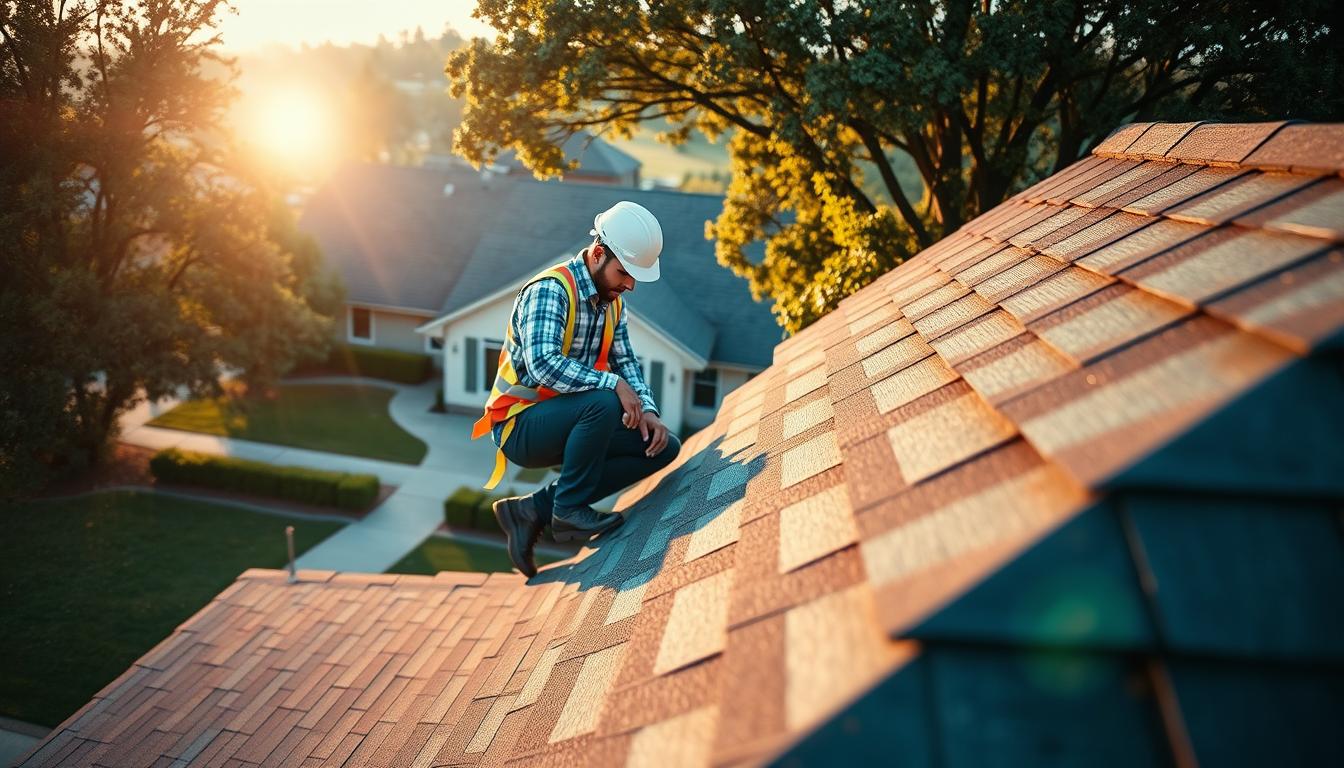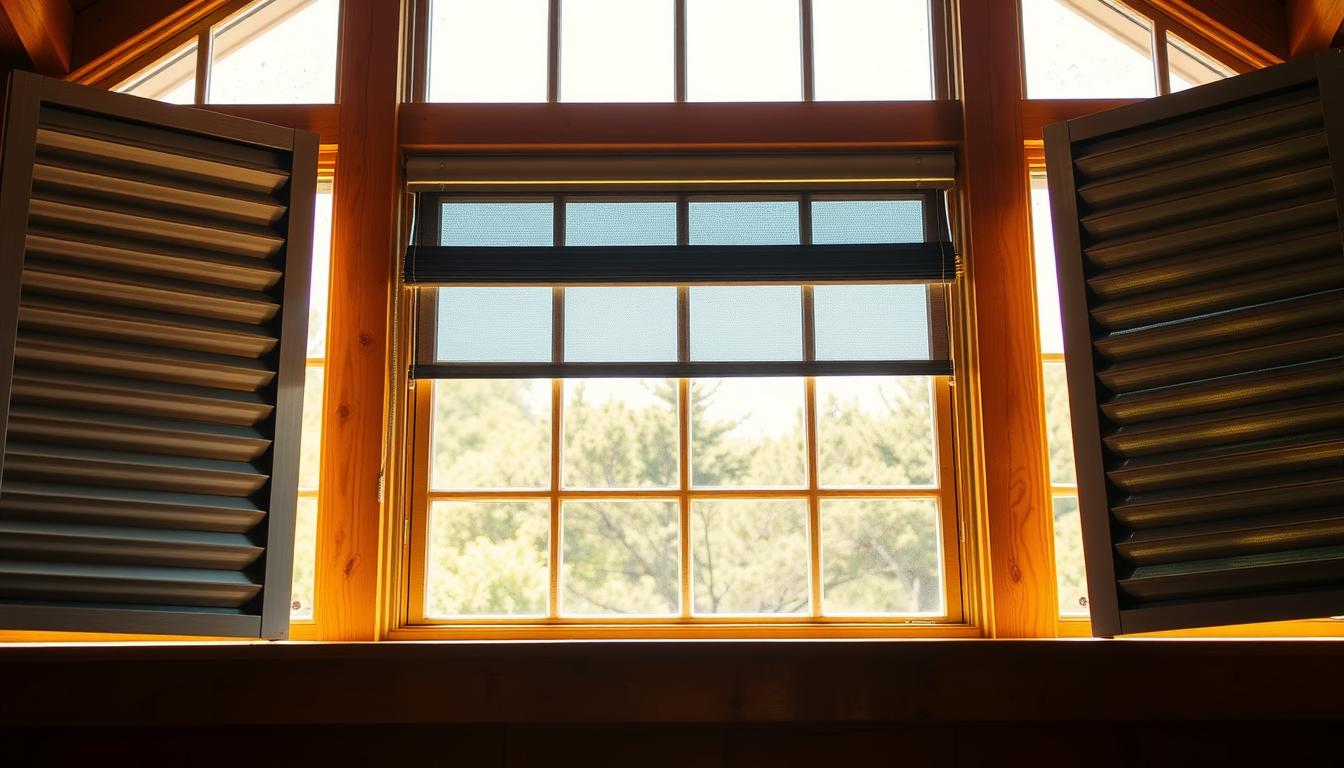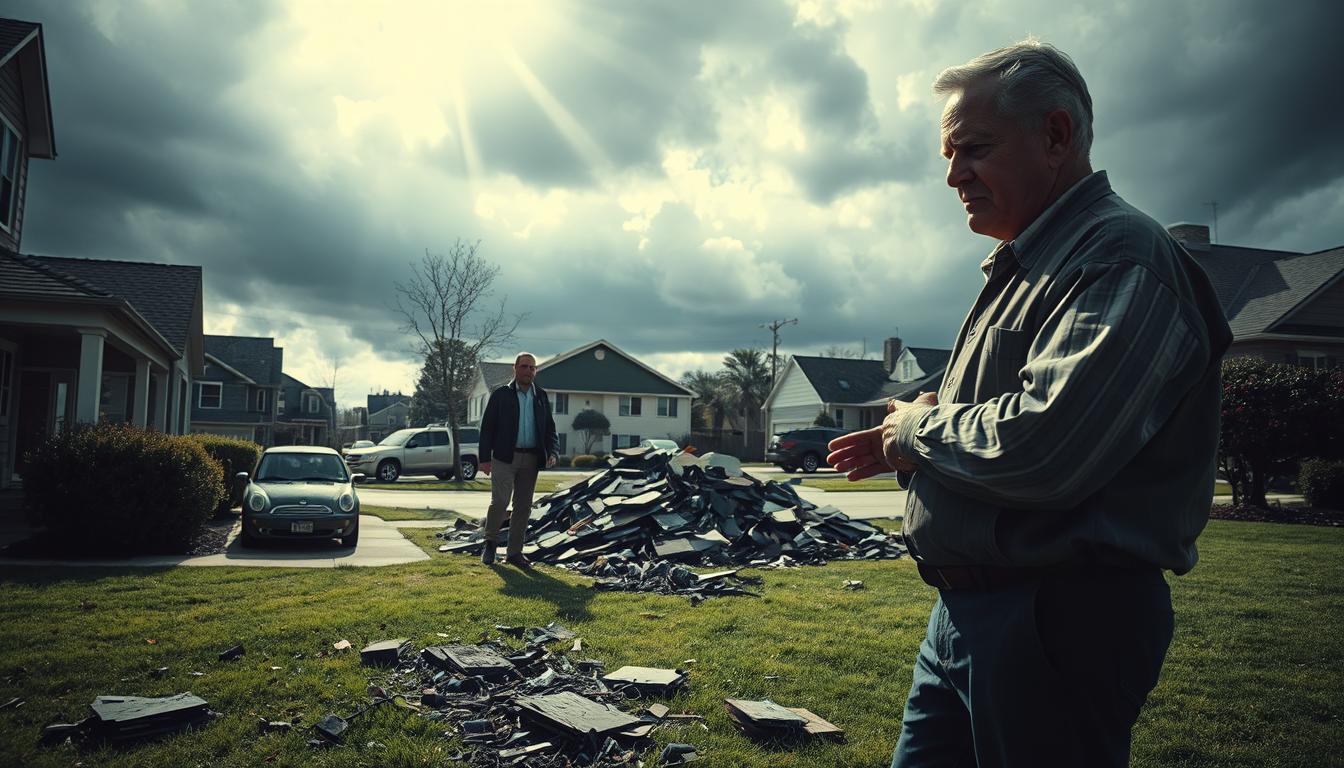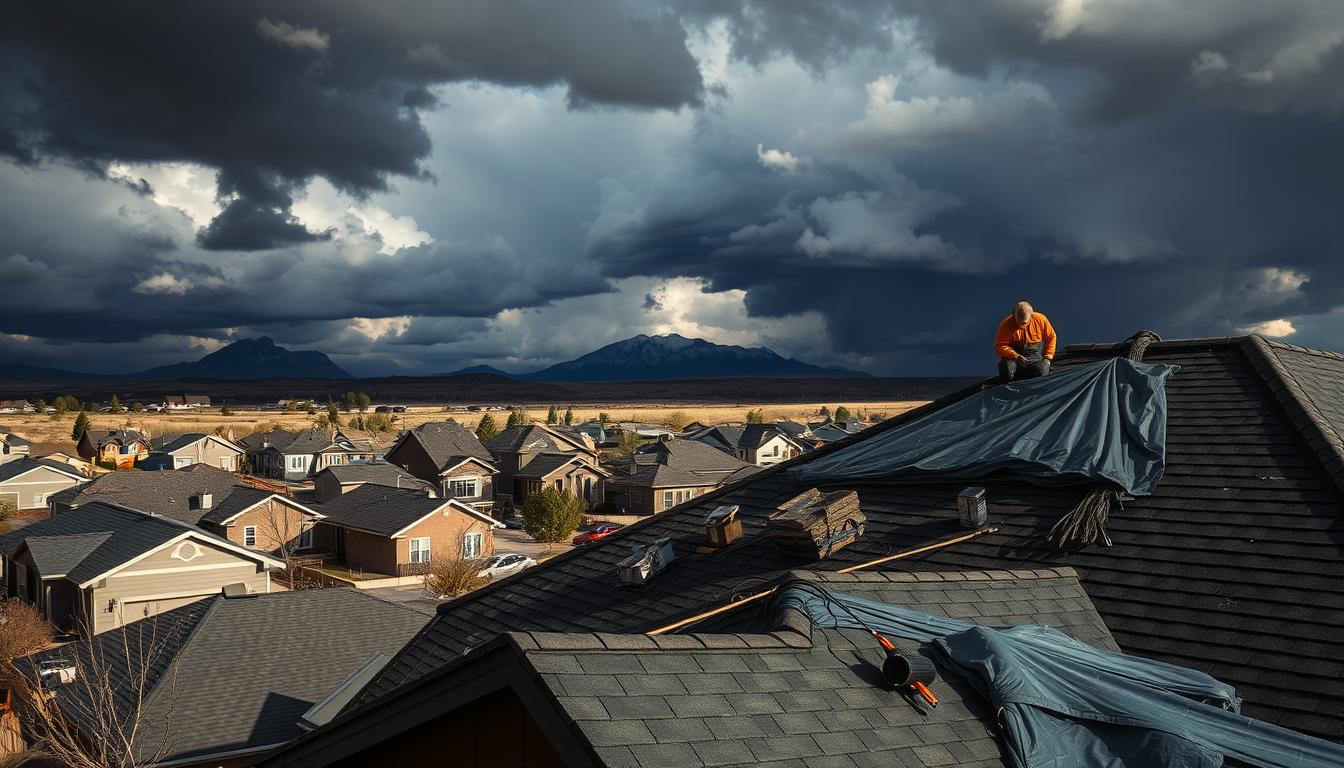The need for quick and quality construction after disasters is huge. But, contractor fraud is a big risk. Most contractors are honest, but some are not. The National Insurance Crime Bureau says 10% of disaster costs go to contractor fraud. This adds up to $9.3 billion in 2023 alone.
This article will cover common construction scam red flags. We’ll talk about warning signs and how to protect your company.
Key Takeaways
- Be careful of unlicensed contractors who offer very low-ball estimates or ask for too much upfront payment
- Look out for high-pressure tactics, shoddy workmanship, and uninsured workers. These are signs of a contractor scam
- Projects left unfinished and fake references mean a contractor is likely involved in fraud
- Make sure to check contractors well and don’t pay everything upfront. This helps avoid construction scams
- Keep a job journal and take photos. These can be important evidence against contractor fraud
The Rampant Rise of Construction Scams
After natural disasters, people are more likely to fall victim to contractor fraud. This fraud can take many forms, like bid rigging and using fake materials. It also includes overcharging and doing unnecessary work.
Construction Scams: A Billion-Dollar Burden
The National Insurance Crime Bureau found that 10% of disaster costs, or $9.3 billion in 2023, were lost to scams. This shows how big of a problem construction scams are. Homeowners, businesses, and communities need to be careful and informed to avoid these scams.
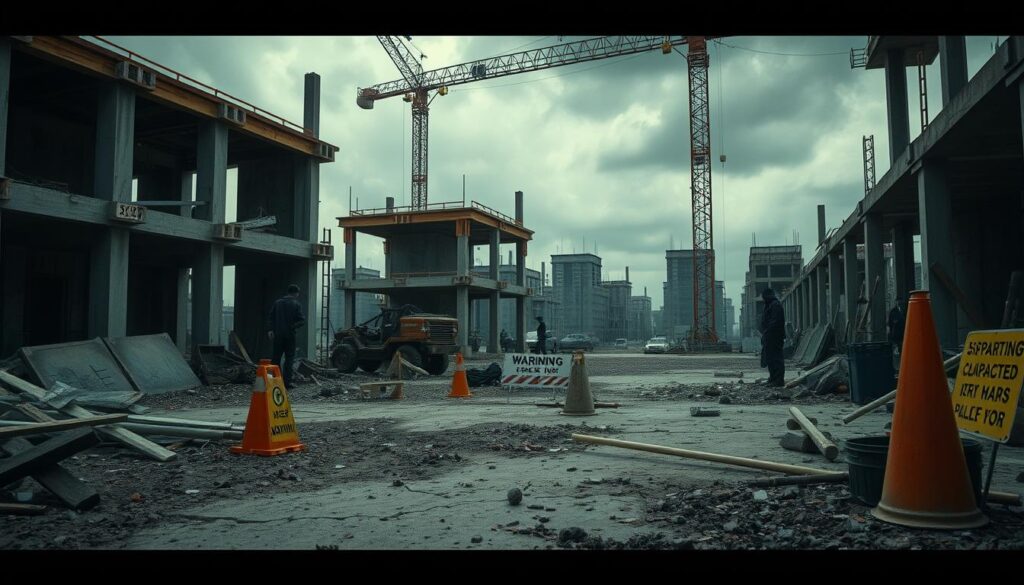
- More fake job ads appear on job boards every day.
- Job seekers are losing money and their identities to scams.
- The scammer in the example offers a weekly salary of $700 to potential job seekers.
- Scammers are getting better at hiding their tricks.
- People who were scammed did their homework and checked with the company, revealing the scam.
- Real companies don’t ask for money before hiring.
- Scammers often pretend to be real companies to trick people.
Common Construction Scam Red Flags
Protecting your business from construction scams is key. Knowing the signs is crucial. Look out for these common red flags:
- Unusually low-ball estimates: Contractors with prices that seem too low might be planning to ask for more money later.
- Demands for large upfront payments: Good contractors ask for a down payment, not the whole amount upfront. Be wary of those who want cash only.
- Lack of proper documentation: Trustworthy contractors have licenses, insurance, and references. Stay away from those who hide their credentials.
- High-pressure tactics: Reliable professionals don’t rush you. Avoid those who push hard or use aggressive sales methods.
- Reluctance to provide a written estimate: A good contractor gives a detailed, written estimate before starting work.
- Resistance to references or reviews: Legitimate businesses are proud of their work and offer references and reviews.
Stay alert and do your homework to avoid construction scams. A little caution can save a lot of trouble.
Construction Scam Red Flags
The construction industry faces many challenges. It’s important to watch out for scams that can harm homeowners. These scams include poor work, uninsured workers, and projects left unfinished.
Scammers often target older adults. They try to take advantage of their trust and wealth.
Beware of Common Contractor Fraud Tactics
One common scam is the “free” inspection. Contractors offer to check your home for free. Then, they find “urgent” repairs that cost too much.
Another scam is offering cheap repairs after a disaster. Scammers take advantage of homeowners in disaster situations. Some contractors also try to make a small project bigger and more expensive.
- Lack of proper licenses or insurance coverage for workers
- Demands for payment in untraceable forms, such as cash or gift cards
- Claims of having leftover materials from a previous job, offering a “discounted” price
- Attempts to arrange financing or pressure you to make an immediate decision
- Fake references or an absence of reviews, indicating a history of dissolving companies
Knowing these construction scam red flags and contractor fraud tactics helps protect homeowners. It keeps them safe from bad work, uninsured workers, and unfinished projects.
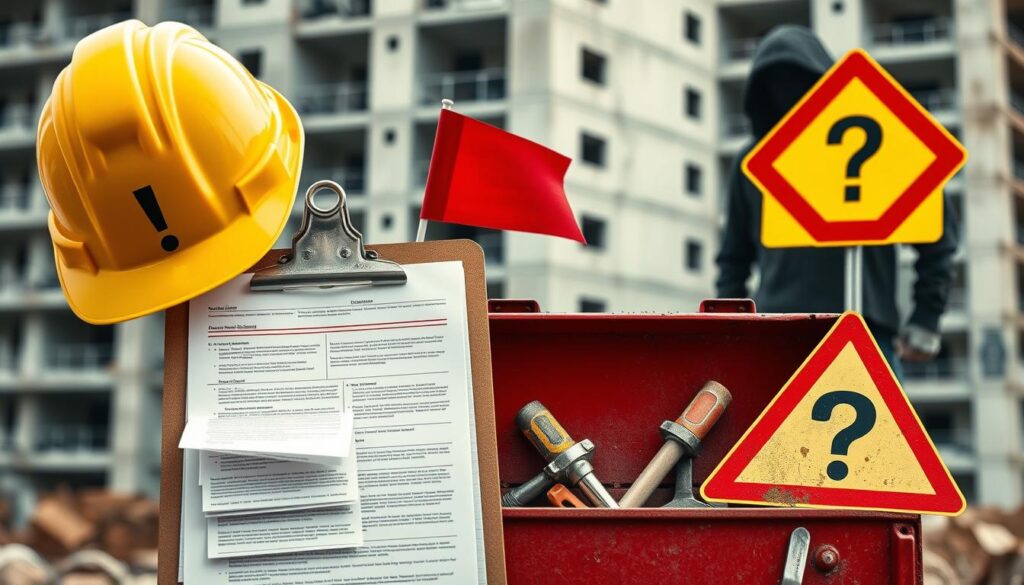
Severe Legal and Financial Impacts
Hiring a bad contractor can lead to big legal and financial problems. You might face breach of contract issues and high legal costs. Fraudulent contractors can break state and federal laws, leading to penalties.
Financially, contractor fraud can cause big losses. You’ll have to pay for the initial contract and more to fix bad work. Bad work can also lower your property’s value. Insurance claims can raise your premiums or even cancel your policy.
Lastly, being a victim of contractor fraud can hurt your reputation. This can make it hard to get future contracts or business deals.
- Legal impacts of contractor fraud:
- Breach of contract issues
- Litigation costs and legal fees
- Violations of state and federal regulations
- Legal consequences and penalties
- Financial impacts of contractor fraud:
- Immediate losses, including the cost of the initial contract
- Additional expenses to rectify substandard work or complete unfinished projects
- Decreased property value due to substandard workmanship or materials
- Increased insurance premiums or policy cancellations
- Reputational damage:
- Diminished ability to secure future contracts or business opportunities

Preventive Measures and Risk Management
To protect your business from contractor fraud, it’s key to take proactive steps. Start by doing thorough background checks on contractors. Also, check their credentials and references well and ask for multiple bids to get fair prices.
Make sure contractors have valid insurance coverage. Choose them from reputable sources and make sure all work and terms are in a written contract. Also, check if they have the right permits.
Safeguarding Your Business
Use a staged payment plan to manage money risks. An insurance advisor can help a lot. They can review contracts, help with risk management, and support claims. They can also give you a list of trusted contractors.
- Conduct thorough background checks on potential contractors
- Review credentials and references extensively
- Obtain multiple bids for competitive and transparent pricing
- Ensure contractors have valid insurance coverage
- Hire through reputable sources
- Clearly outline all agreed-upon work and terms in a written contract
- Verify that necessary permits have been obtained
- Implement a staged payment plan
- Consult with an insurance advisor for contract review, risk management, and claims support
By using these steps and strategies, you can protect your business from contractor fraud. You’ll be able to face challenges with confidence and recover well.

Conclusion
The United States faces more natural disasters than ever before. Construction contractors play a key role in the recovery. But, contractor fraud is a big threat that needs attention.
Knowing the construction scam red flags helps companies fight fraud. This knowledge is crucial for contractor fraud prevention and handling disaster recovery well.
Doing thorough checks, having strong controls, and working with risk advisors are key. These steps help protect against the harm caused by scams. They also help in rebuilding and recovery efforts.
The construction industry is vital for the nation’s recovery. Companies must stay alert and take steps to prevent fraud. By being informed and strict, they can face challenges head-on. They will come out stronger and ready to help their communities in tough times.
FAQ
What are some common red flags for construction scams?
How prevalent is contractor fraud, and what are the financial consequences?
What are some common contractor fraud tactics to watch out for?
What are the legal and financial consequences of hiring a disreputable contractor?
How can I protect my business from contractor fraud?
Source Links
- https://todayshomeowner.com/home-finances/guides/avoiding-contractor-scams/
- https://www.ncoa.org/article/what-is-a-home-improvement-scam-learn-8-warning-signs/
- https://www.linkedin.com/pulse/job-offer-scams-how-avoid-them-robert-h-thayer-ii-mba
- https://appleroof.com/roofing-scams-to-avoid/
- https://fourthcapital.com/educational-article/scam-of-the-month-contractor-scam-awareness/
- https://oag.dc.gov/blog/consumer-alert-how-avoid-home-improvement-scams-0
- https://www.cbiz.com/insights/articles/article-details/avoiding-contractor-fraud-essential-tips-red-flags-property-casualty
- https://www.architecturaldigest.com/story/bad-contractors-red-flags-warning-signs
- https://succeedwithcontractors.com/contractor-fraud/
- https://crigroup.com/due-diligence-red-flags/
- https://prsroofpro.com/roofing-contractor-red-flags/
- https://www.linkedin.com/pulse/6-red-flags-spot-construction-scams-paolo-volpi
- https://www.cohnreznick.com/insights/procurement-purchasing-fraud-red-flags-prevention
- https://www.levelset.com/blog/construction-fraud/
- https://www.gma-cpa.com/blog/employee-fraud-construction-industry
- https://www.boulderhomesource.com/blog/home-seller-red-flags/


